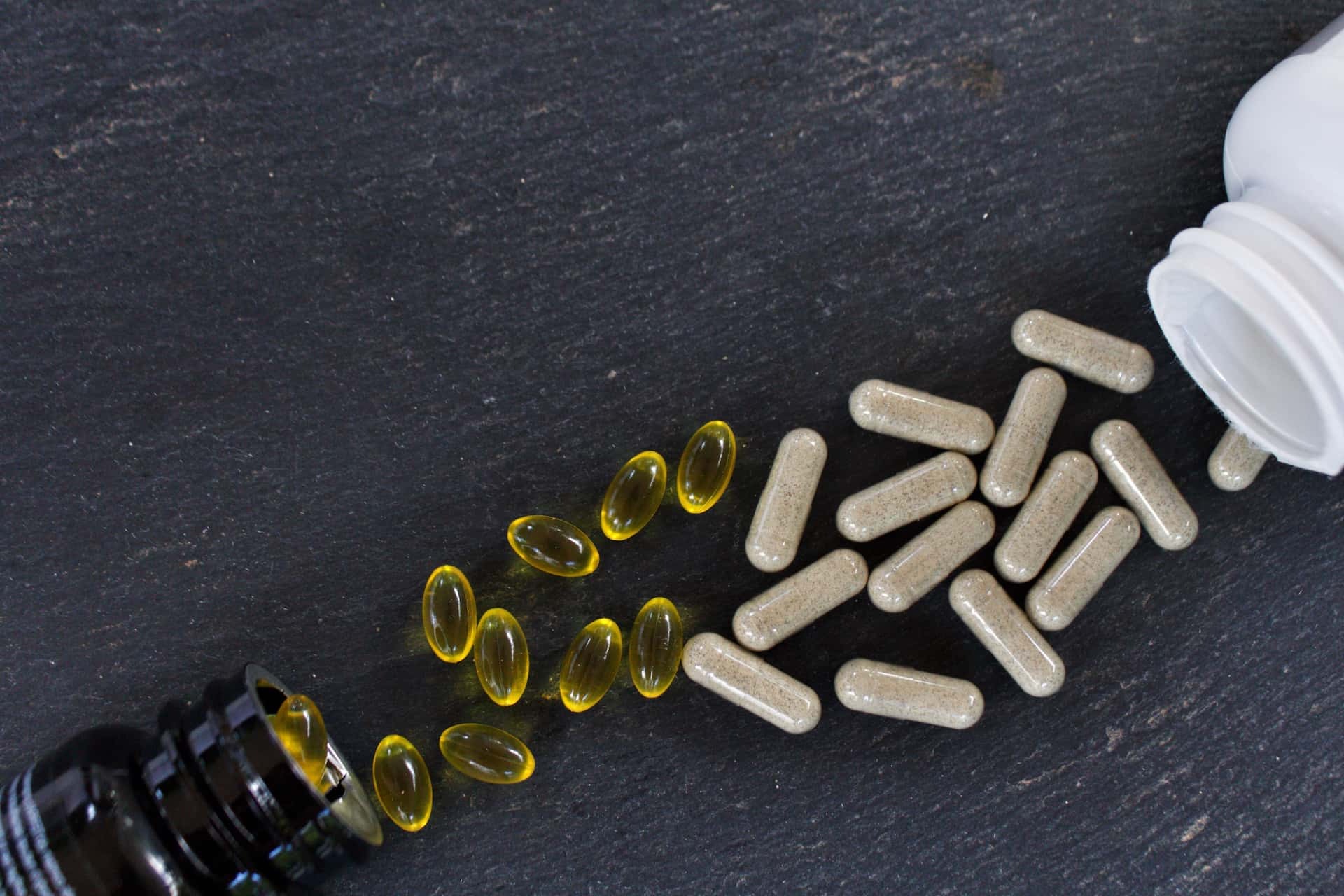
Zinc toxicity can sneak up on anyone who consumes too much of this essential mineral. While zinc is vital for immune function, wound healing, and DNA synthesis, too much can cause serious health issues. Symptoms of zinc toxicity include nausea, vomiting, loss of appetite, stomach cramps, diarrhea, and headaches. Long-term exposure can lead to more severe problems like copper deficiency, weakened immune function, and neurological issues. It's crucial to understand the sources of zinc, such as supplements, certain foods, and even some over-the-counter medications. Knowing the safe limits and recognizing the signs of overconsumption can help prevent these adverse effects.
Key Takeaways:
- Too much zinc can harm your body! Stick to the recommended daily allowance to avoid nausea, lowered immunity, and other serious health issues.
- Zinc is important, but balance is key. Be mindful of supplements and zinc-rich foods to prevent toxicity and maintain overall health.
Understanding Zinc Toxicity
Zinc is an essential mineral for human health, but too much can lead to toxicity. Let's explore some important facts about zinc toxicity.
-
Zinc is vital for immune function, wound healing, and DNA synthesis. However, excessive intake can disrupt these processes.
-
The recommended daily allowance (RDA) for zinc is 11 mg for men and 8 mg for women. Consuming more than this amount regularly can pose health risks.
-
Zinc toxicity can occur from taking high-dose supplements or consuming foods with high zinc content. Over-the-counter supplements often contain more zinc than the body needs.
-
Symptoms of acute zinc toxicity include nausea, vomiting, loss of appetite, stomach cramps, diarrhea, and headaches. These symptoms usually appear within a few hours of ingestion.
-
Chronic zinc toxicity can lead to more severe health issues. These include lowered immunity, decreased levels of good cholesterol, and disruptions in copper and iron metabolism.
Causes of Zinc Toxicity
Understanding the causes can help prevent zinc toxicity. Here are some common sources of excessive zinc intake.
-
Overuse of zinc supplements is a primary cause of zinc toxicity. Many people take supplements without consulting a healthcare provider.
-
Consuming foods high in zinc, such as oysters, red meat, and poultry, in large quantities can contribute to toxicity. Moderation is key.
-
Using denture creams containing zinc can lead to toxicity if used excessively. Some denture adhesives contain high levels of zinc.
-
Inhalation of zinc oxide fumes, often from industrial processes, can cause a condition known as metal fume fever. This is a form of zinc toxicity.
-
Drinking water contaminated with zinc from old pipes or industrial waste can also lead to toxicity. Ensuring clean water sources is essential.
Symptoms and Diagnosis
Recognizing the symptoms and getting a proper diagnosis is crucial for managing zinc toxicity.
-
Early symptoms of zinc toxicity include gastrointestinal distress. This can manifest as nausea, vomiting, and diarrhea.
-
Neurological symptoms such as dizziness, headaches, and lethargy may also occur. These symptoms can be mistaken for other conditions.
-
Long-term exposure to high levels of zinc can lead to anemia. This happens because excess zinc interferes with iron absorption.
-
Zinc toxicity can also cause copper deficiency. Copper is essential for forming red blood cells and maintaining nerve cells.
-
A blood test measuring serum zinc levels can diagnose zinc toxicity. Elevated levels indicate excessive zinc intake.
Treatment and Prevention
Knowing how to treat and prevent zinc toxicity can help maintain optimal health.
-
The first step in treating zinc toxicity is to stop taking zinc supplements. Reducing dietary zinc intake may also be necessary.
-
Chelation therapy can be used in severe cases. This treatment involves using agents to bind and remove excess zinc from the body.
-
Increasing copper intake can help counteract the effects of zinc toxicity. Foods rich in copper include nuts, seeds, and shellfish.
-
Regular monitoring of zinc levels is important for individuals at risk. This includes those who take supplements or work in industries with zinc exposure.
-
Educating the public about the risks of excessive zinc intake can help prevent toxicity. Awareness campaigns can be effective.
Interesting Facts about Zinc
Here are some intriguing facts about zinc that highlight its importance and potential risks.
-
Zinc is the second most abundant trace mineral in the human body, after iron. It plays a crucial role in numerous biological functions.
-
The body does not store zinc, so it must be consumed regularly through diet. This makes maintaining a balanced intake essential.
-
Zinc is found in every cell of the body. It is a component of over 300 enzymes that aid in metabolism, digestion, and nerve function.
-
Zinc deficiency is more common than zinc toxicity. However, both conditions can have serious health implications.
-
Zinc can interact with certain medications, such as antibiotics and diuretics. This can affect the absorption and effectiveness of these drugs.
Zinc in Everyday Life
Zinc is present in many everyday items, which can contribute to both its benefits and risks.
-
Zinc is used in the production of brass, a metal alloy. This alloy is commonly found in musical instruments and household fixtures.
-
Many sunscreens contain zinc oxide. This compound provides broad-spectrum UV protection.
-
Zinc is an essential component of batteries, particularly alkaline batteries. It helps generate the electrical charge.
-
Zinc is added to some breakfast cereals and snack bars as a fortifying agent. This helps prevent zinc deficiency in the population.
-
Zinc is used in the galvanization process to prevent rusting of steel and iron. This extends the life of metal structures and products.
Myths and Misconceptions
There are several myths and misconceptions about zinc and its effects on health.
-
Myth: More zinc always means better health. Fact: Excessive zinc can be harmful and lead to toxicity.
-
Myth: Zinc supplements are safe for everyone. Fact: Not everyone needs supplements, and they should be taken under medical supervision.
-
Myth: Zinc can cure the common cold. Fact: While zinc may reduce the duration of a cold, it is not a cure.
-
Myth: Only older adults need to worry about zinc intake. Fact: People of all ages need to monitor their zinc intake to avoid deficiency or toxicity.
-
Myth: Natural sources of zinc are always safe. Fact: Even natural sources can lead to toxicity if consumed in excessive amounts.
Final Thoughts on Zinc Toxicity
Understanding zinc toxicity is crucial for maintaining health. Here are a few more facts to consider.
-
Zinc is crucial for taste and smell. Deficiency can lead to a loss of these senses.
-
Excessive zinc can impair the immune system. This makes the body more susceptible to infections.
-
Zinc plays a role in cell division and growth. Both deficiency and toxicity can affect these processes.
-
Zinc is important for skin health. It helps in the production of collagen and the healing of wounds.
-
Monitoring zinc intake is essential for overall health. Balancing zinc consumption through diet and supplements can prevent toxicity.
Key Takeaways on Zinc Toxicity
Zinc toxicity isn't something to take lightly. High levels of zinc can lead to nausea, vomiting, loss of appetite, stomach cramps, diarrhea, and headaches. Long-term exposure can cause more severe issues like low copper levels, lower immunity, and even neurological problems. It's crucial to be aware of the sources of zinc in your diet and supplements to avoid overconsumption. Foods like meat, shellfish, dairy, and fortified cereals are rich in zinc. While zinc is essential for health, balance is key. If you're considering zinc supplements, consult a healthcare provider to ensure you're not exceeding the recommended daily intake. Awareness and moderation can help you reap the benefits of zinc without the risks of toxicity. Stay informed, stay healthy.
Frequently Asked Questions
Was this page helpful?
Our commitment to delivering trustworthy and engaging content is at the heart of what we do. Each fact on our site is contributed by real users like you, bringing a wealth of diverse insights and information. To ensure the highest standards of accuracy and reliability, our dedicated editors meticulously review each submission. This process guarantees that the facts we share are not only fascinating but also credible. Trust in our commitment to quality and authenticity as you explore and learn with us.


